Enjoy the Wonders of Hajj in Birmingham
Gabriele Shenar & Shadia Taha
Birmingham’s various Muslim communities play a significant part in the city’s rich and diverse tapestry. According to the 2021 census (Birmingham Live), Muslims in Birmingham form 29.9 per cent of the overall population. Hajj is one of the most important annual events in the Islamic calendar. The planning and preparations for Hajj are an opportunity to unite, educate and prepare pilgrims for their journey to Mecca. As one female member of the Al-Abbas Islamic Centre (Al-Abbas) in Balshall Heath explains: ‘What keeps Islam going and makes it remain strong is owing to the rituals performed every year from the beginning of Islam to the present.’
Importantly, during the weeks prior to the pilgrimage period local Muslim communities invest both materially and emotionally to learn about the Hajj’s ritual repertoire. Faith and religious obligation thus link up with business and marketing strategies, talent pooling, designing and building. They also ensure that planned events are made possible through the strategic placement of available material resources.
Mujtaba, Principal of Al-Abbas Islamic Centre’s Sunday School, has done Hajj twice. Given his experience, he offers another insightful observation that evokes the importance of community-based teaching and learning, as well as mutual support and exchange of ideas:
‘Because you're sitting with other Muslims and get an understanding of what they're going through, what their challenges are. Maybe you can help, and you can also exchange ideas of best practices. For example, we did the Hajj Experience exhibition. Someone may not have done it, but maybe they did something else, and they can talk to us about it.’
Going on Hajj means that Muslim pilgrims need to perform certain steps in their proper order during their journey. In the past, this knowledge was usually passed on within the family and directly in Mecca. Thus, pilgrims simply followed their elders without necessarily understanding the importance of the place, the ritual and why it is performed. More recently, modern media technologies such as blogs, videos, e-books, and websites, as well as experienced and knowledgeable tour guides and their volunteer helpers, are taking on an increasingly significant role for learning and teaching. Teaching the Hajj also forms an important part of the annual education programme in mosques and madrassas (educational institution, often part of a mosque). Traditionally, Islamic education relied on the uses of teacher-centred education methods. However, modern teaching methods such as embodied learning, as well as technology-based methods, are now also increasingly embraced to enhance the teaching. Some schools may teach the Hajj using Virtual Simulation Technology while others teach the subject through re-enactment and more traditional methods, or a mixture of various methods.
Mujtaba and his team at Al-Abbas Islamic Centre in Birmingham are mindful of these new developments too. After all, they are keen to keep the 400 children and young adults enrolled in their educational programme highly motivated and inspired to learn.
‘We are up against a very staunch competition”, … ‘but we want to instil spirituality into our children and young people.’ … ‘So, when the Hajj season was approaching, we thought, how we're gonna do it differently this year. So, we thought, yeah, let's go for it…. If we can't go to Hajj, let's bring Hajj here…. and then we started.’
And this is how the first ever ‘Enjoy the Wonders of Hajj’ exhibition in Birmingham came into being. The exhibition was designed as a community event, a kind of testing ground where possible shortcomings could be monitored and dealt with internally, without attracting any publicity. “’Mistakes are better made within the community.’ opines Mujtaba.
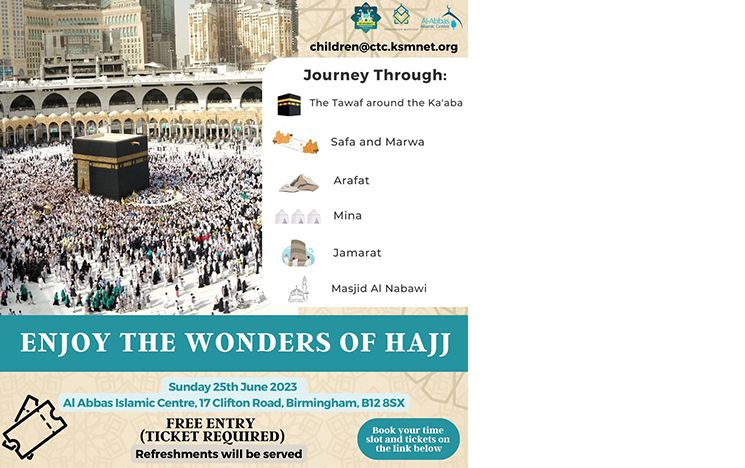
Figure 1: Flyer 'Enjoy the Wonders of Hajj'
The original 1980s mosque at 17 Clifton Road has made way for a new 10-million-pound home for the congregation that is still under construction. Hence the temporary mosque currently housing the community was to be the centre stage for the project, the site outside catered as the barren plains of Arafat where pilgrims during the Hajj stand in contemplative vigil, along with the planned mock airport and plane. The project Mujtaba and his team envisaged was to include the full experience of Hajj, that is, all 18 steps a pilgrim needs to go through during the Hajj journey. And this is where children and young people came in since after all, the exhibition project was meant to be an educational one and Mujtaba and the exhibition committee wanted them to be fully immersed in the experience.
A Community Receptive to New Ideas
As a seasoned traveller and community activist, Mujtaba knows how to navigate his way through a superdiverse city such as Birmingham. He was born in Tanzania and has lived in various Muslim communities around the world, including Dubai, London, and New York. And yet, Birmingham has conquered a special place in his heart:
‘I've experienced different mosques and different communities, but… I find Birmingham to be very united and … very receptive to new ideas.’
It turns out that being receptive to new ideas means that people associated with Birmingham’s Al-Abbas Islamic Centre are supportive and generous. One member of the congregation, without hesitation handed over his van keys for a whole month on hearing that Mujtaba and the exhibition committee needed transportation to collect all the materials required for the staging of the interactive exhibition. With a nod to the environment and local business, all materials were purchased in Birmingham.
Mujtaba’s efforts are much appreciated by his congregation. He knows how to tap into the community’s talent, and he has a way of keeping people on board. Hence, when a talented amateur stage designer wondered if someone was needed to build all the props, he jumped at the opportunity and got the self-taught member on board immediately. The plan was to cover a massive floor area with white cloths; build palm trees, a cemetery, a mosque, a replica of the Kaaba, an airport, as well as a plane and much more. The community was full of praise for the talented woman who worked from morning till evening, with only a short break in the afternoon. Many other members of the community, too, contributed with their knowledge, skill, talent, time and energy to the exhibition project. Indeed, the exhibition committee included several seasoned Hajj pilgrims whose intimate knowledge of the buildings, rituals, and the overall ambiance of Mecca during the Hajj provided an invaluable source of information. Community based architects, designers, engineers, calligraphers, and graphic designers, all worked on the project.
The result was as resounding success. ‘It was brilliant.’ observed several of the refugees who had been invited along. Visitors commented especially on the minute detail of the various props. Another visitor, clearly moved by the exhibition, exclaimed: ‘Oh, my God! This is amazing! This should be on display in a museum, in an art gallery, or in the museum in Wolverhampton.’ ‘They even had sheep made of cardboard boxes and one little kid played the devil who tried to lure pilgrims away from the righteous path.’
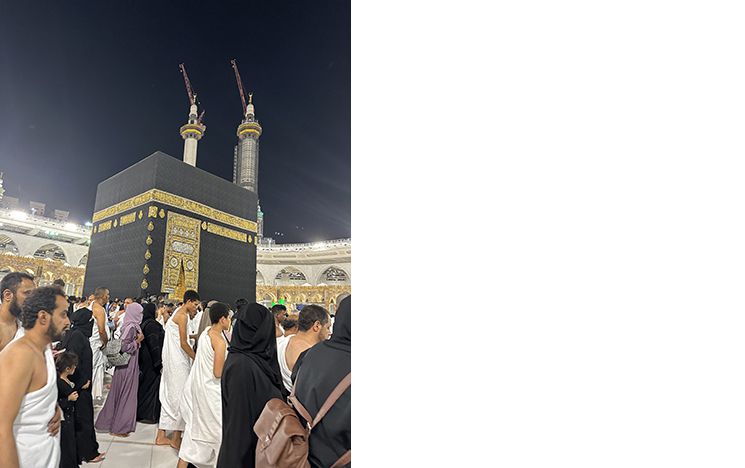
Figure 2: Pilgrims walk around the Kaaba during Umra, August 2023
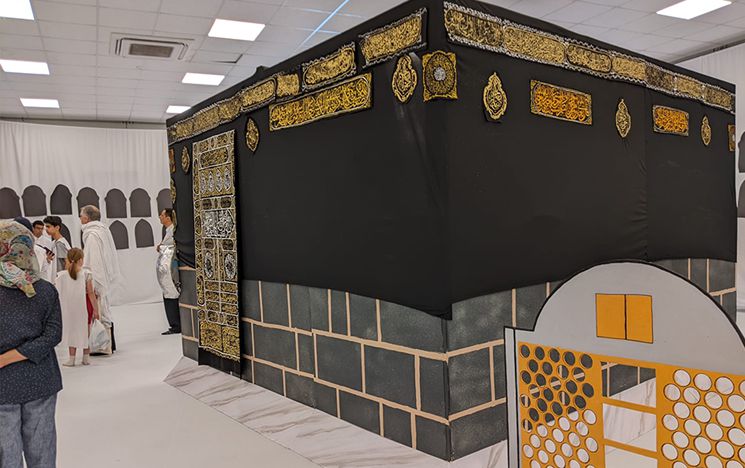
Figure 3: Replica of the Kaaba, ‘Enjoy the Wonders of Hajj’ exhibition, Birmingham, 2023
A Resounding Success
600 tickets were pre-booked online. Visitors were led around in groups of 30. Many thought the exhibition should have stayed open longer to allow more communities to benefit from the inspired idea. Mujtaba agrees, however, on reflection he wonders if the plane and the airport could have been built better. Most importantly, the hoped-for educational aims and objectives had been achieved. As Mujtaba sums it up:
’We had Sunday school students on the ground explaining each step of how it's to be done, and that for us actually was more important than the construction. Because when you go there the whole process, the whole reason why you go there is to connect with your Lord.’ …
And even though what was built was beautiful, we wanted everyone to concentrate on the inner beauty of Hajj.’
There was clearly also a very emotional and affective dimension to the ‘Experience the Wonders of Hajj’ exhibition. For some it created the longing of wanting to go on Hajj in the face of complications of reality such as not being able to travel or illness. Other visitors were overwhelmed with emotion, as it brought back cherished memories of the Hajj journeys they had already undertaken.
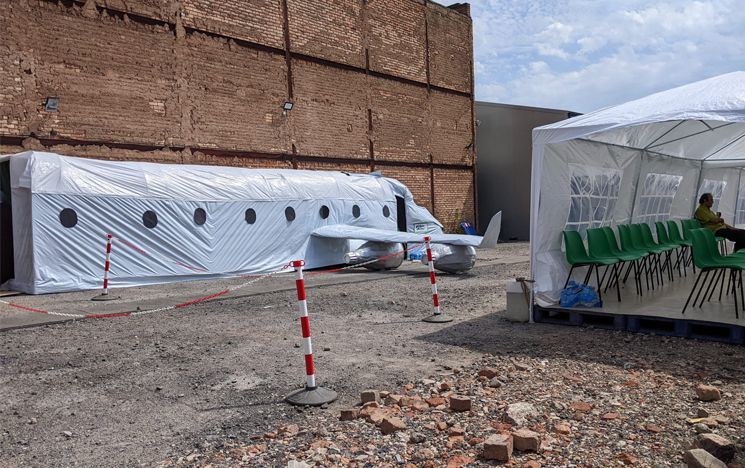
Figure 4: Airport and Plane ‘The Wonders of Hajj’ exhibition, Birmingham, 2023
Hajj Cannot Ever Be Replaced
We asked all our interlocuters if this experience could ever replace the real Hajj, especially in view of the ever-increasing costs and the quota system that can make the real experience unaffordable and inaccessible. Everyone was adamant that neither virtual technology nor Hajj re-enactments could ever replace the real Hajj, no matter how perfectly replicated. As one woman put it:
‘The exhibition was a brilliant idea, but it will never replace the real Hajj. The exhibition teaches people what to do when they go to Hajj, it encourages them to perform the real Hajj, young children learn about the history of Hajj and hopefully they will perform Hajj when they are older.’
The Chair of the Inter-faith activities at the mosque noted that the event was also a great opportunity to showcase the Muslim community and give members of other faiths an opportunity to learn about Hajj. ‘An astounding creative achievement, really moving, and I learned loads,’’ commented a member of Birmingham Progressive Synagogue who had come along with Jewish and Muslim friends.
For now, Al-Abbas Mosque keeps all props and artefacts that featured in the ‘Experience the Wonders of Hajj – 2023’ exhibition safely stored away. However, as soon as the Mosque Committee members have agreed on a theme for their next exhibition, several of the exhibits and props will be back in the limelight.
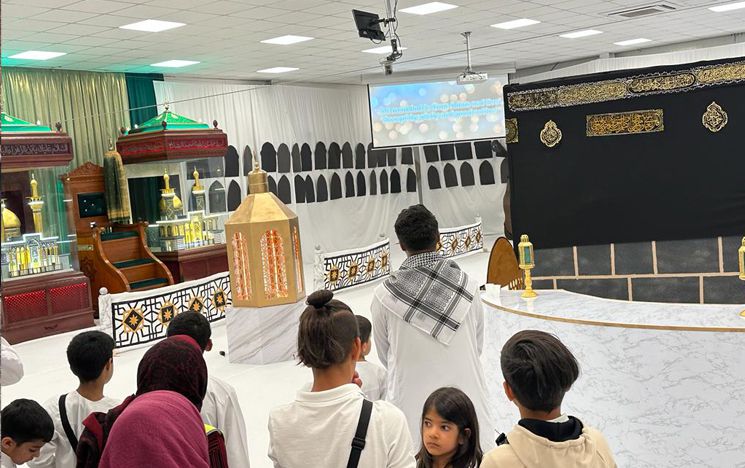
Figure 5: Guided tour, 'The Wonders of Hajj' exhibition, Birmingham, 2023